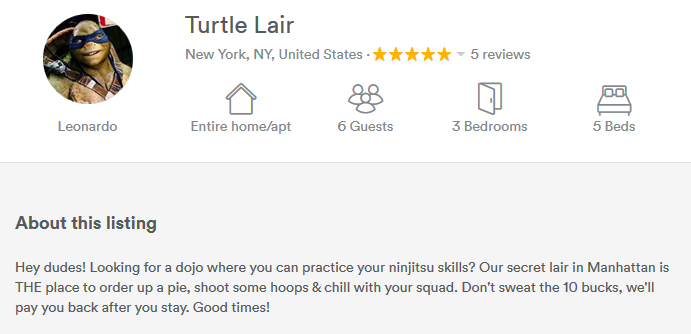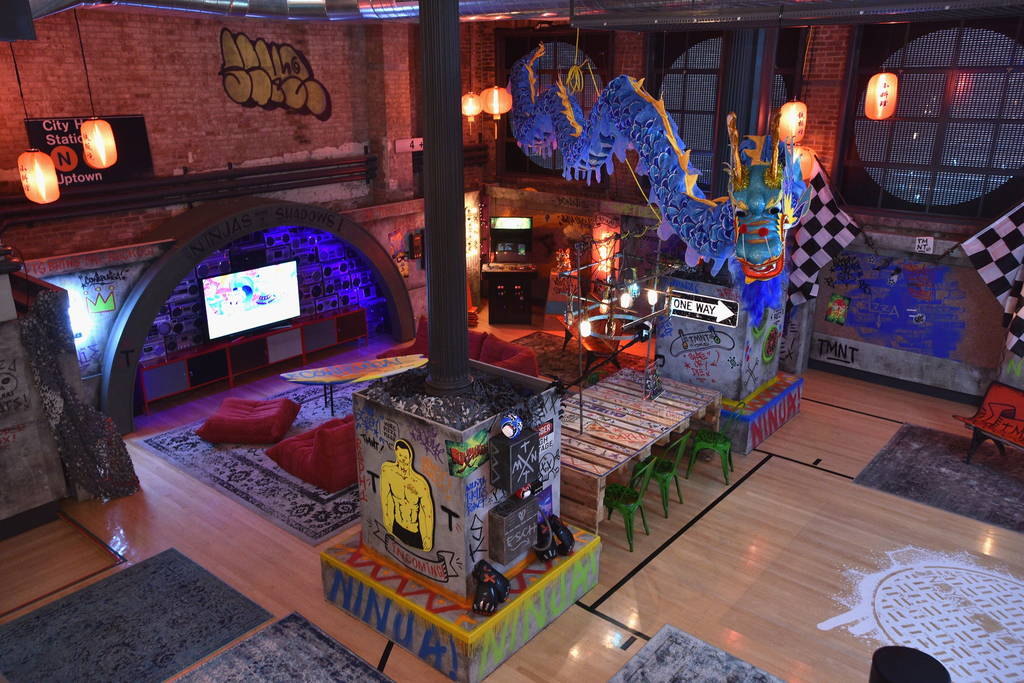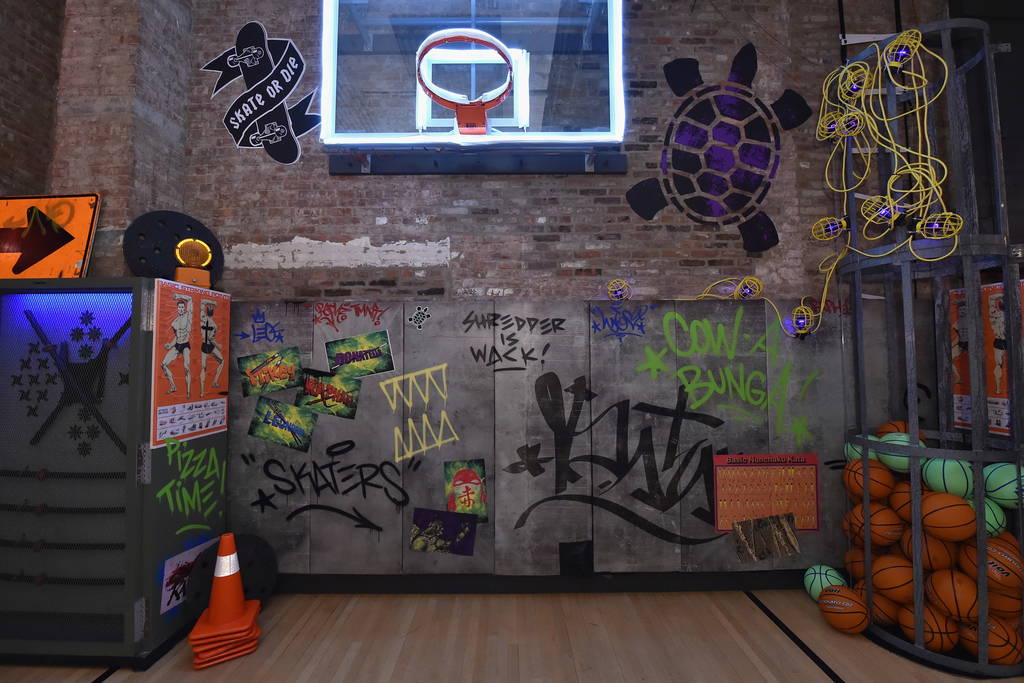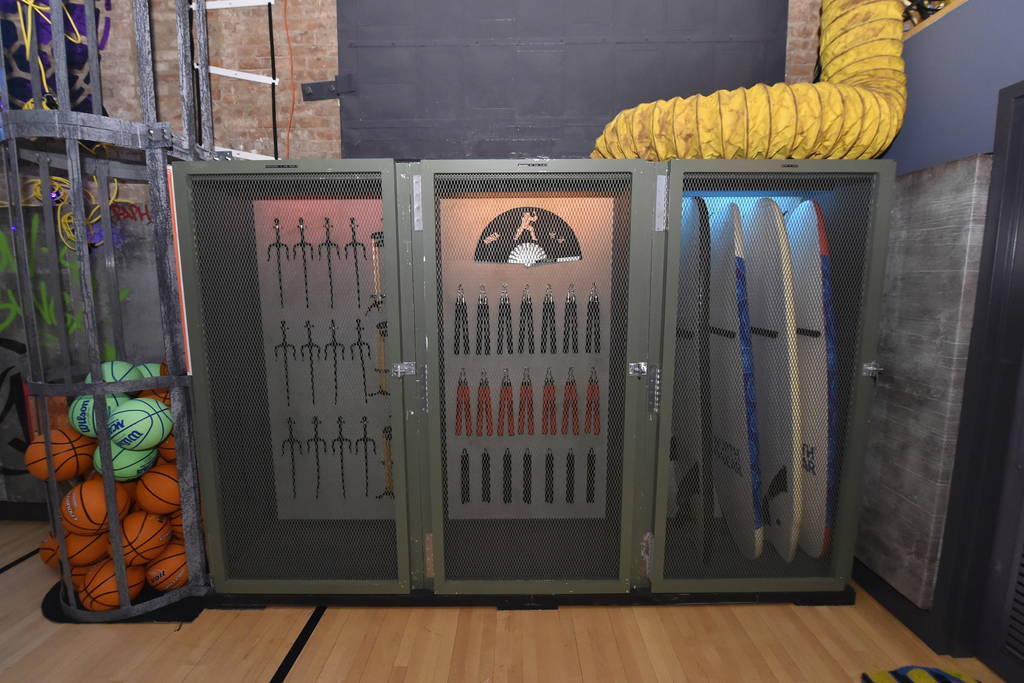Posts
-
The Blogging Gauntlet: May 30 - Welcome to the Medium
CommentsThis is part of The Blogging Gauntlet of May 2016, where I try to write 500 words every day. See the May 1st post for full details.
If you don’t know who Alan Moore is, let me tell a story.
Alan Moore is one of the most influential comic writers of all time. Among his works is Watchmen, which I consider to be a masterpiece. It’s visually rich, thick with plot and symbolism, and has an all around engrossing narrative.
Alan Moore is also known for having very strong opinions about adaptations of his work. Moore has without fail hated adaptations of his work, so much so that he refuses to be listed in the credits of those adaptations. The one exception is the Justice League Unlimited adaptation for “The Man Who Has Everything”.
So, when a Watchmen movie was announced, his response was typical - he refused to see it and did not want to be credited. However, his reasoning was interesting.
There are things we did with Watchmen that could only work in a comic, and were indeed designed to show off things that other media can’t.
(Entertainment Weekly)
I haven’t found a quote by Moore where he explains this, but here’s a fan explanation I quite liked. Watchmen uses tons of visual callbacks, and lots of visual motifs. An entire chapter is palindromic for pete’s sake. It’s rich enough that sometimes you want to pause and take in all the detail.
A comic lets you do this, but a film doesn’t. A film pushes images at you frame after frame. It dictates the pace of each scene. In contrast, when reading a comic, the reader chooses how long they spend on each page. Comic time can be stretched or contracted or made to run backwards if the reader wishes it to be. When Dr. Manhattan talks about determinism and seeing all times at once, it can be interpreted as a commentary on comic readers themselves. It doesn’t work as well in a movie because the subtext disappears.
Just as there are differences between comics and movies, there are differences between books and movies. William Goldman wrote the book The Princess Bride, then later adapted it into the movie people endlessly quote. What’s striking is how different the plot is between the two. The book has a deeper backstory on Inigo Montoya’s father. It has a more elaborate framing device, where instead of a grandfather telling a story it’s an unhappily married man rewriting a story his father told him in his youth. Goldman didn’t have to change anything since he wrote his own adaptation, but he did. Why?
Let me take a stab at why movies have fundamentally different storytelling standards. A book has a much easier time doing inner monologues. The author is allowed to write each character’s inner thoughts. By contrast, a movie’s goal is to show, don’t tell. The viewer expects the director to make full use of the images and audio, and that expectation places limits on what kinds of dialogue are acceptable. I’ve heard this is very clear in the Hunger Games adaptations, which have to cut out lots of Katniss’s inner monologue.
The choice of medium influences the kind of stories you can tell. In extreme cases you get things like Watchmen, but even in normal cases different mediums have different strengths and weaknesses. Things hosted online like this blog are pressured to be more casual and readable, because it is super easy for the reader to get distracted, meaning you need a very casual flow of information. That’s good for discussion and bad for concentrated learning. Stories in print are given more leeway, while films are pressured to make sure no one gets lost if they miss a single minor detail.
The title is a reference to Homestuck, a webcomic (kind of) that could only work on the Internet. By incorporating text, animated GIFs, Flash animations, and interactive games, it creates what can only be called an experience. If Watchmen is arguably unadaptable, Homestuck is definitively so.
Another example is Undertale. The game simply would not work if the player was not given the choice between Spare or Kill, making it a story that works best as a video game. Any other medium wouldn’t give that choice. (There are spoilery reasons for why a Choose Your Own Adventure book wouldn’t work either.)
Next time you see something interesting, try considering through what means it was presented, and see if it colors your perception. If you find anything interesting, leave me a comment, since I’d like to learn more.
-
The Blogging Gauntlet: May 29 - Self-Indulgent Garbage
CommentsThis is part of The Blogging Gauntlet of May 2016, where I try to write 500 words every day. See the May 1st post for full details.
Apologies in advance if I have typos or worse writing than usual. I’m traveling right now and don’t have my laptop with me, meaning I have to use a different writing flow.
Right now, I’m typing on a iPad, using GitHub’s built in text editor. It’s actually not as bad as I thought it would be. The touch keyboard does a decent job of approximating a real keyboard. Of course it’s a lot smaller, but it’s still loads better than a phone keyboard.
However, obviously I’m making do with a non-ideal situation by using the tools I have. Typing is much, much slower than an actual keyboard. Furthermore, I don’t have an easy way to check all the formatting works, besides launching the site and hoping for the best.
It’s funny. I’ve always seen tablets as a little extraneous. I thought you either wanted a phone size thing or a laptop size thing. A tablet size thing felt like a weird middle ground. But, now that I’m using one, I can understand why it feels qualitatively different from both. Still don’t think I’ll buy one though.
Anyways, this is a whole new experience for me. Honestly, I wasn’t expecting to even try to make a blog post today. I was just going to take the $20 hit because of how little time I had. But, when there’s a will there’s a way.
I don’t think I’ve emphasized just how convoluted my process is right now, so let me explain.
- I’m borrowing this iPad from my family, so no downloading apps. That means I have to edit through Github’s interface, which to be fair isn’t that bad.
- To check the word count, I’ve been using vim’s built in word counters. I can’t get vim on this iPad so instead…
- I save my work from Github’s interface, then use an SSH client on my personal smartphone.
- Then I SSH to my school account on the Berkeley servers, which luckily isn’t deactivated yet.
- Then I pull the updated text for my blog.
- Then I open vim, which again - is accessed through SSHing from my freaking phone.
- And I can then check my word count.
At last count I was over 230 words. Now…hey, 380! Not bad.
(I would put the Not Bad Obama meme here, but there’s no way I want to deal with setting up all of that on an iPad. Let your imagination fill in the dank meme.)
This is about the moment where you should realize I just spent about 400 words talking about nothing except the struggles I’m going through to type the post you’re reading. Truly, I have hit rock bottom for material. Or to be more precise, I’ve passed rock bottom, because I already used a similar concept in Shut Up And Write. I’m retreading my shitposting! Do you realize how incredibly disappointing that is, to me, a person trying to write semi-serious things?
Oh who am I kidding, this blog has always indulged in memeing about itself.
Time for a word count…
Hey, it’s over 500! (Not, unfortunately, over 9000.) I’ll stop this self-indulgent bullshit here. I think it’s likely I won’t make more posts, but if I do they’ll be back to whatever counts for normal around these parts.
Until next time.
-
The Blogging Gauntlet: May 28 - The Ingenuity of Marketers
CommentsThis is part of The Blogging Gauntlet of May 2016, where I try to write 500 words every day. See the May 1st post for full details.
Today, I learned about one of the coolest marketing stunts I’ve ever seen.
Now, you may or may not know there’s a new Teenage Mutant Ninja Turtles movie coming out. If you didn’t know, I don’t blame you, because I didn’t either. I never watched TMNT as a kid, and this is the sequel to the reboot directed by Michael Bay. I don’t like Michael Bay’s films, so it’s a double whammy.
Anyways, as part of the promotion, check out this AirBnB listing.

Yes, somewhere in New York, they recreated the Turtle’s Lair, and it only costs $10. They don’t let you stay the night, but you get free pizza, and there’s an arcade, and there’s a basketball court.
Ten dollars for pizza and an arcade is a pretty good deal, even if you’re not into Teenage Mutant Ninja Turtles. So obviously, they’re all booked.
This is an amazing, amazing marketing stunt. For one, it’s cheap enough to feel like something any fan could afford. And secondly, the internal decorating is on point. I mean, look at this, it’s ridiculous.



Look, this marketing campaign was cool enough that it marginally convinced me to watch the movie. Me! A guy who has no nostalgia about TMNT, and who expects the movie to be terrible.
(Warning: TVTropes link incoming, click at your own risk.)
There’s some weird kayfabe thing going on, where the listing pretends it’s actually Leonardo talking about the place. They don’t explicit say they’re advertising the movie, but it’s obvious they are if you read the listing in full. Maybe that’s a marketing trick I don’t know? Or at least, maybe it’s how good viral campaigns are made. Things that look too much like advertising don’t go viral. No one wants to look like a corporate stooge who let advertising hijack them. But, if you hide it just a bit, it doesn’t feel like you’re giving them exposure even though you are.
(For the record, I am not a marketer, I have read literally nothing on marketing, do not assume I know what I’m talking about.)
Sometimes, I forget that there are people whose entire job is to figure out how to social engineer as many people as possible to look at their stuff. People literally make a living out of this.
This is the point where some of you may say, “The market has a demand for this and these people can supply it.” Yes, I get it, but it’s not something I consciously think about. I don’t think about how many artists the art market can support, or how many people are employed to design new headphones. I only think about markets when I’m explicitly challenged to think about markets.
Okay, getting off topic, back to advertising. I actually can’t remember the last time I’ve seen a marketing stunt so interesting. I think part of it is that this was hosted on AirBnB. I spend most of my time around people who know the tech industry, and at times it definitely feels like a bubble. Not an economic bubble, a social bubble. (It might be an economic bubble, but I don’t trust my judgment here.) Everyone I talk too knows about Medium, Hacker News, Quora, and Palantir, which are four random tech industry things that are more obscure than you’d assume if you live your life in Silicon Valley.
I wouldn’t expect a marketing group to know about AirBnB, and even if they did I wouldn’t expect them to figure out a way to use it for advertisement. I’ll have to update my beliefs about this later.